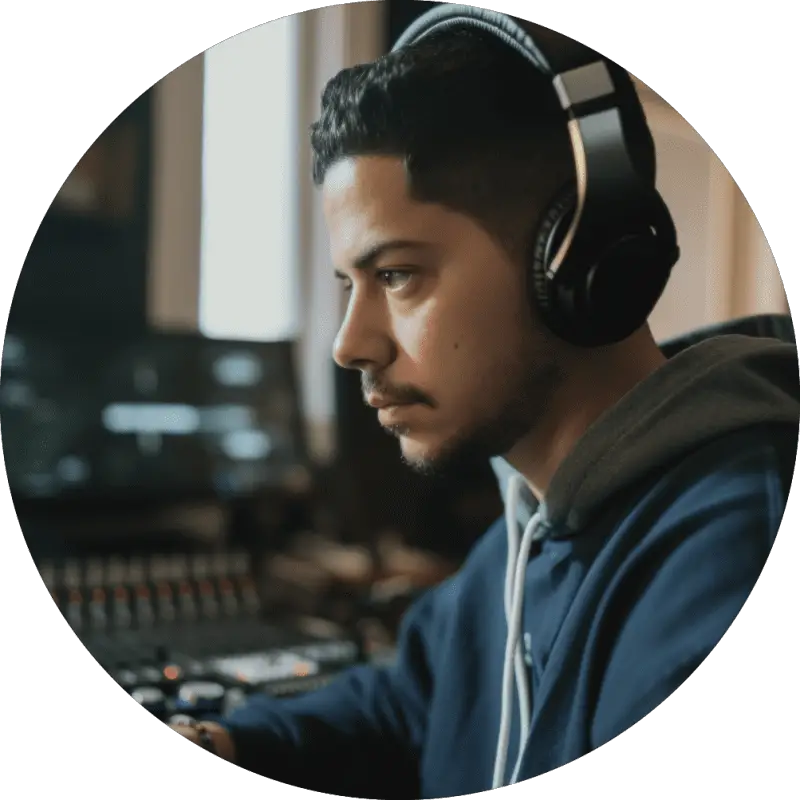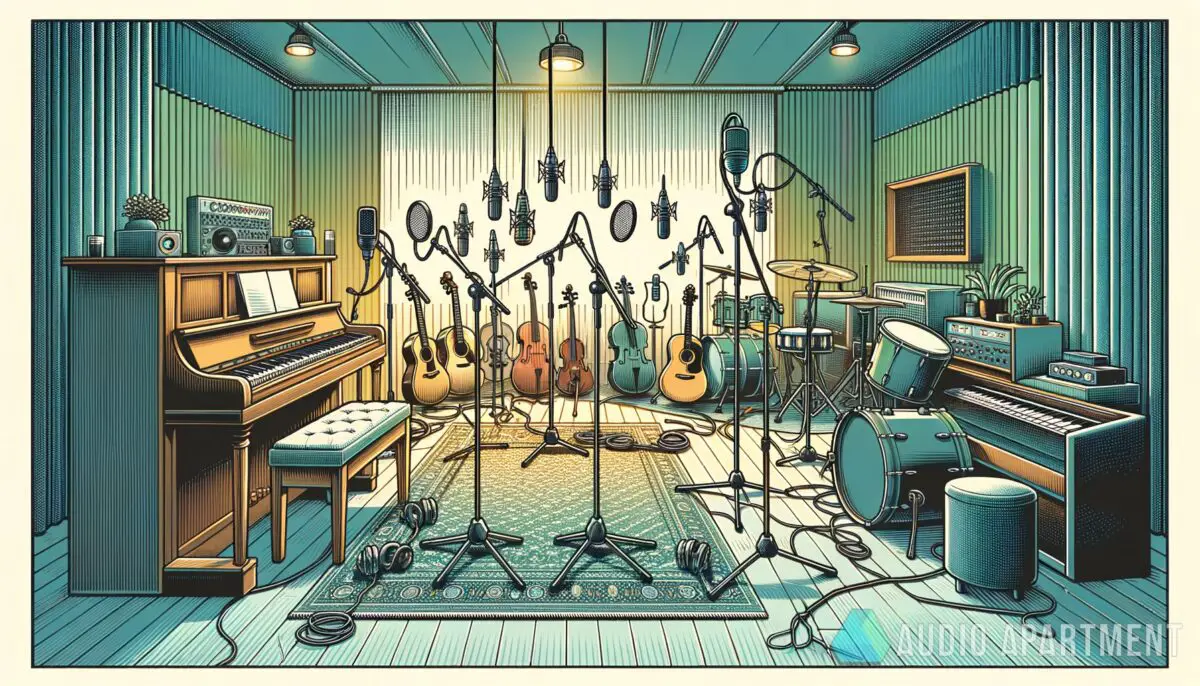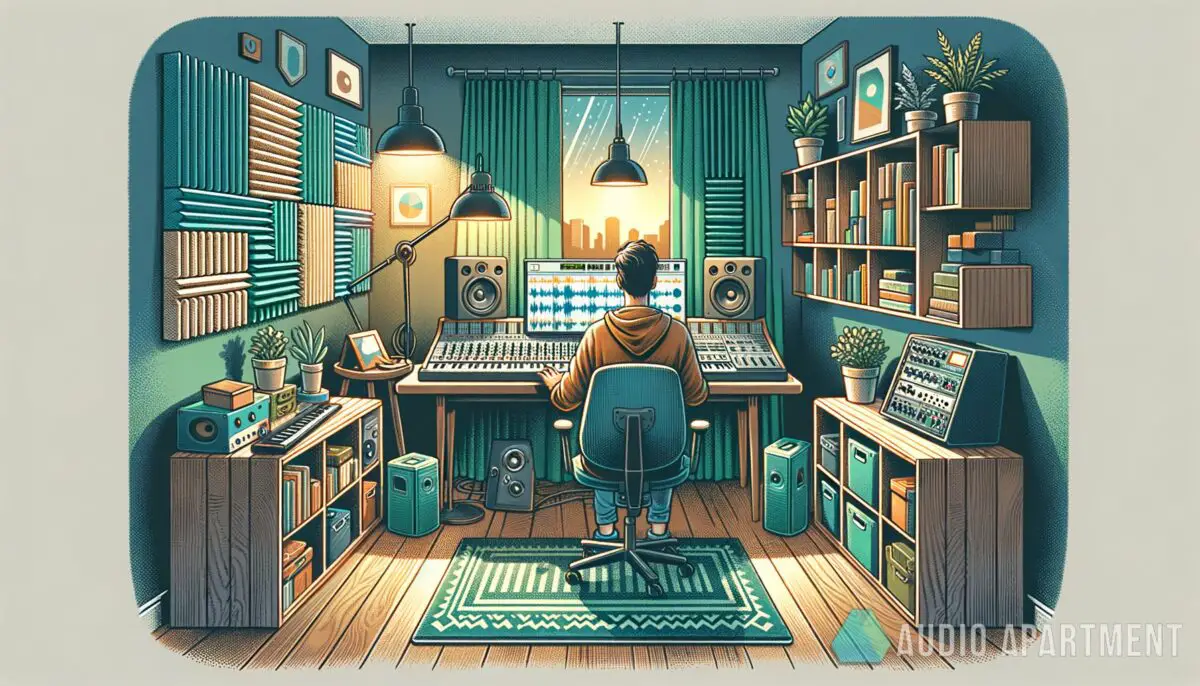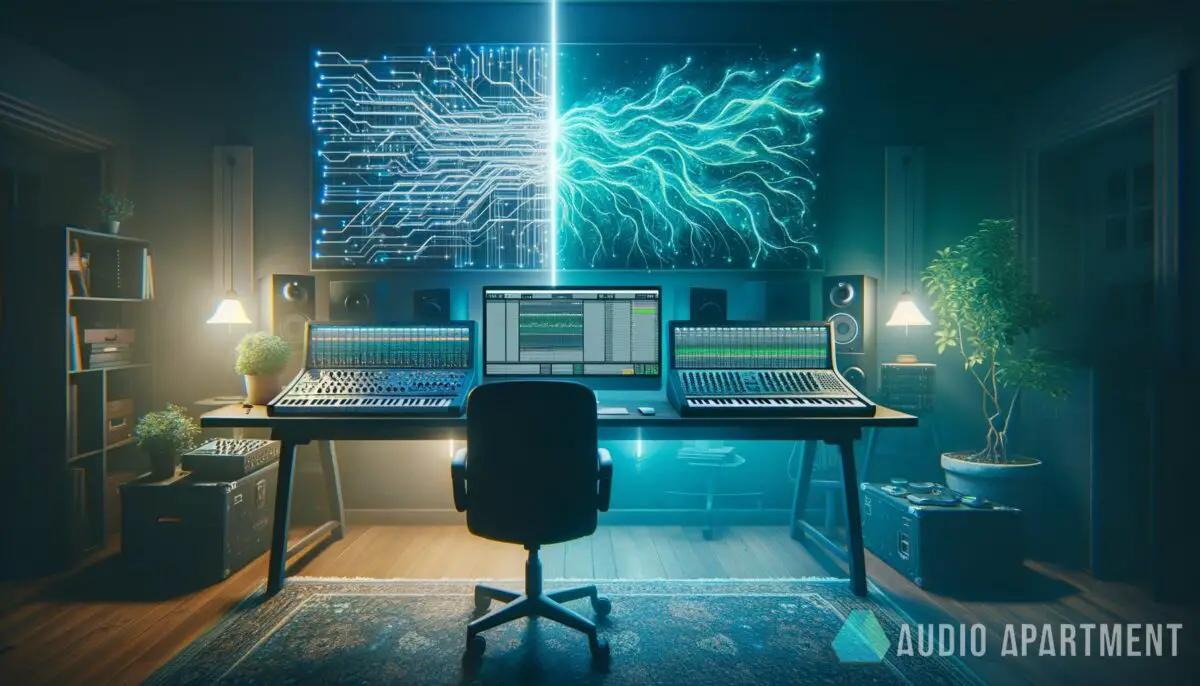As a music producer, I often get asked about the differences between audio mixing and producing. While these two terms are often used interchangeably, they actually refer to two different stages of the music production process.
In this article, we’ll delve into the world of audio mixing and producing and explore the key differences between the two. So grab your headphones, and let’s dive in!
What are the differences between audio mixing and producing? Audio mixing and producing are two different stages of the music production process. Audio mixing involves combining multiple audio tracks into a single, cohesive final mix, while music production is the broader process of creating a finished piece of music from start to finish.
What is audio mixing?
Imagine that you’re a home recording studio enthusiast, and you’ve just finished recording a killer new track. You’ve got all of your instruments and vocals recorded onto separate tracks, and now it’s time to mix them together into a final version of the song. This is where audio mixing comes in.
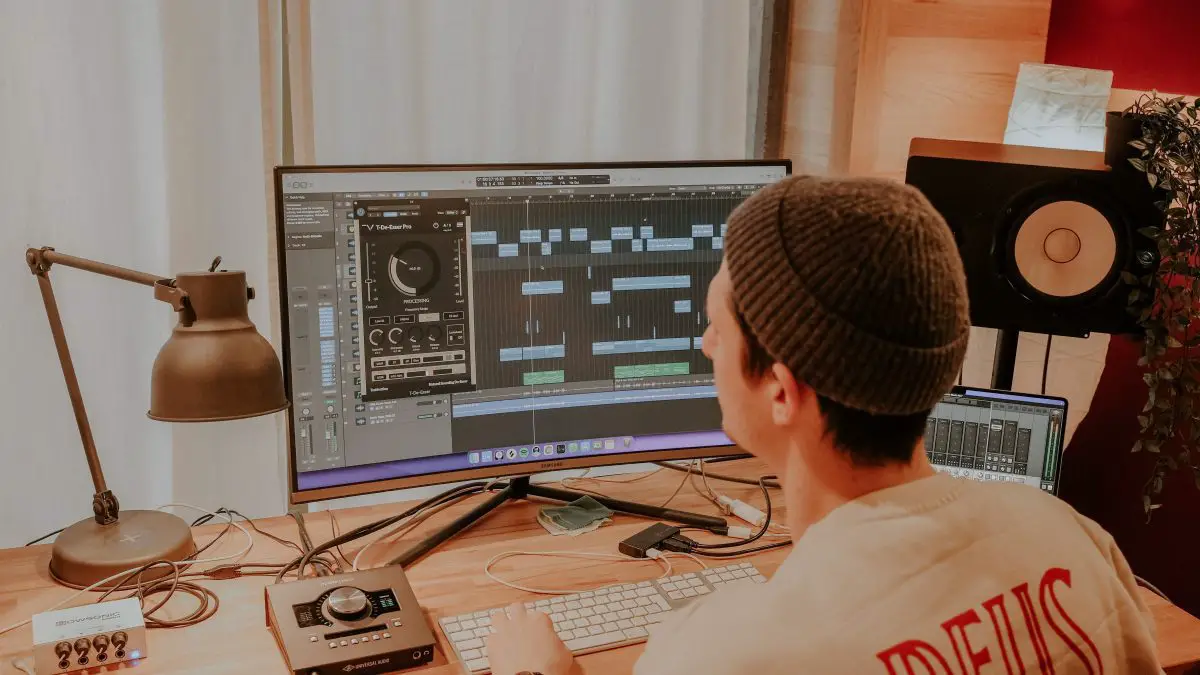
As the audio mixer, it’s your job to listen to each track and make decisions about how it should fit into the overall mix. You might decide to adjust the levels of each track so that the vocals are loud and clear, but the drums aren’t too overpowering. You might use panning to move certain instruments left or right in the stereo field. And you might add effects such as reverb or delay to add depth and interest to the mix.
All of these decisions and adjustments are part of the audio mixing and mastering process, and they are crucial for creating a final mix that sounds professional and polished.
An audio mixer/engineer producer is responsible for overseeing the technical aspects of the music production process, including tasks such as:
- Combining the recorded tracks into a single, cohesive final mix, using techniques such as adjusting levels, panning, and adding effects
- Preparing the final mix for distribution, ensuring that it meets industry standards and sounds polished and professional
- Collaborating with other professionals, such as producers and musicians, to create a successful and cohesive final product
- Providing technical guidance and support to the artist or band during the recording and mixing process
AKAI Professional MPK Mini MK3

AKAI Professional MPK Mini MK3
What is music producing?
Imagine that you’re a home recording studio enthusiast, and you’ve just come up with a good idea for a new song. You start by writing the lyrics and melody, and then you create a rough arrangement of the song using a digital audio workstation (DAW) or other music software. You record each instrument and vocal track, and then you start mixing the tracks together to create a final version of the song.
A producer is responsible for the broader process of creating a finished piece of music from start to finish.
Throughout this process, you’re acting as the audio producer. You’re making decisions about the songwriting, arrangement, and recording, and you’re overseeing the mixing process to make sure that the final mix sounds polished and professional. You might also be involved in other aspects of the production process, such as choosing which instruments to use or deciding on the overall direction and style of the song.
A producer is responsible for the broader process of creating a finished piece of music from start to finish. This includes tasks such as songwriting, arrangement, recording, and mixing, as well as other creative and technical decisions that shape the final sound of the music. In a home recording studio, audio producing typically involves overseeing the entire music production process from start to finish.
Some of the tasks of a music producer include:
- Songwriting and arrangement: working with the artist or band to develop ideas and create a cohesive song structure
- Recording: setting up the recording studio, selecting the right equipment and microphones, and working with the artist or band to capture high-quality audio
- Mixing: combining the recorded tracks into a single, cohesive final mix, using techniques such as adjusting levels, panning, and adding effects
- Mastering: preparing the final mix for distribution, ensuring that it meets industry standards and sounds polished and professional
- Creative direction: providing guidance and direction to the artist or band, helping them to develop their sound and achieve their creative vision
- Collaboration: working with other professionals such as engineers, mixers, and musicians to create a successful and cohesive final product
- Budget and schedule management: overseeing the production process to ensure that it stays on schedule and within budget
In general, audio production is a complex and creative process that involves many different tasks and skills. As a home recording studio enthusiast, you have the opportunity to take on the role of audio producer and create your own music from start to finish.
How are audio mixing and producing different?
Audio mixing and producing are two different stages of the music production process, and they have some key differences. Audio mixing involves combining multiple audio tracks into a single, cohesive final mix, while audio producing is the broader process of creating a finished piece of music from start to finish.
In general, audio mixing is focused on the technical aspects of creating a final mix, while audio producing is focused on the creative aspects of making music.
Additionally, there are several factors at play when deciding whether or not to bring in a third party to mix an album, but the primary one is that mixing is a distinct art form that calls for a unique set of abilities and knowledge, and some individuals are just far better at it than others. People are employed in the music business just for this purpose.
Because of familiarity bias, it’s important to have an outsider listen to the project and provide feedback; the creators of the work may not be able to perceive the flaws in it as easily as someone who hasn’t spent so much time with it. Even if they aren’t the most talented musicians, a competent mixer is nevertheless sought for their ability to identify and enhance desirable musical qualities in a recording.
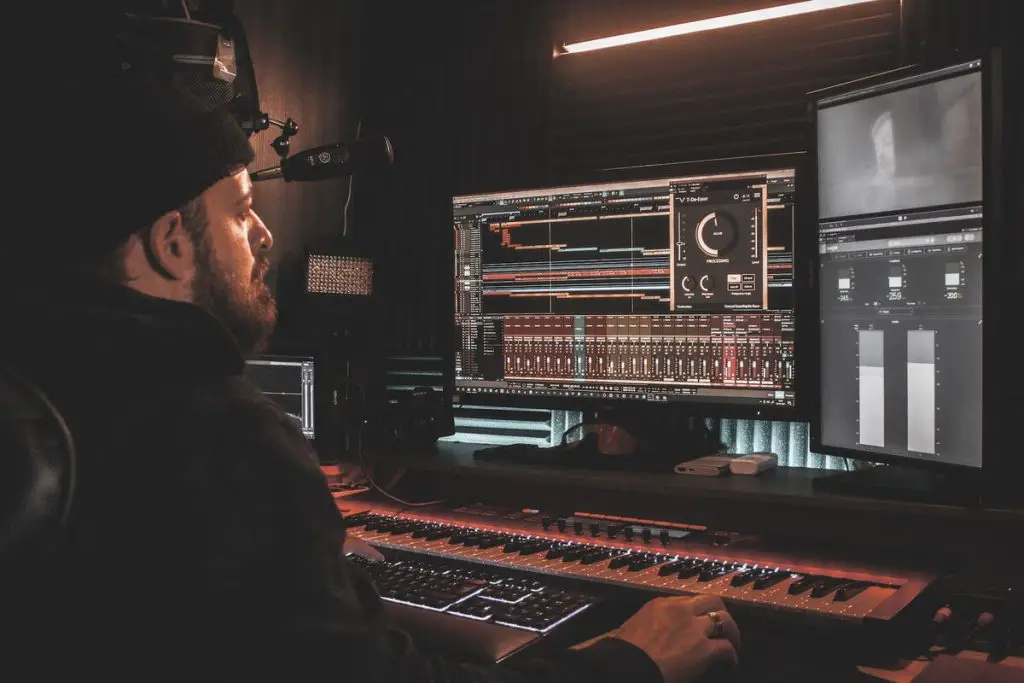
Similarities between audio mixing and producing
While audio mixing and producing are two distinct stages of the music production process, they also have some key similarities. For example, both audio mixing and producing involve making creative and technical decisions that shape the final sound of the music. Both also require a deep understanding of the tools and techniques of music production, and both require a keen ear for detail and a sense of aesthetics.
You’re making creative and technical decisions that shape the final sound of the song. You’re using your knowledge of music production tools and techniques to craft a finished piece of music that sounds polished and professional. So whether you’re an audio mixer or an audio producer, remember that both roles require creativity, technical skill, and a deep understanding of the music production process.
The future of audio mixing and producing in home recording studios
The future of audio mixing and producing in home recording studios looks bright. New technologies and tools are constantly emerging to make the process faster, easier, and more efficient.
In the upcoming years, we can expect to see home recording studios continue to evolve and improve with new software and hardware solutions that make it easier for musicians and enthusiasts to create professional-quality music from the comfort of their own homes.
For example, we might see the emergence of new DAW software that allows for even more complex and powerful arrangements, as well as new recording technologies that make it easier to capture high-quality audio. We might also see the creation of new mixing tools and methods, like advanced algorithms that can help automate some of the more boring parts of mixing a song.
If you want even more tips and insights, watch this video called “Mixing vs Producing | What’s the Difference?” from the Nathan James Larsen YouTube channel.
Frequently asked questions (FAQ)
Do you still have questions about the differences between audio mixing and producing? Below are some of the most commonly asked questions.
How much money does a producer make?
The amount of money that a producer makes can vary greatly depending on factors such as their experience and reputation, the type of project they are working on, and the size of the budget. According to data from the Bureau of Labor Statistics, the median annual salary for producers and directors in the United States is $79,000 as of May 2021. However, some producers can make much more than this, depending on the success of their projects and the demand for their services
How much money does an audio engineer make?
The amount of money that an audio engineer makes can vary greatly depending on factors such as their experience and reputation, the type of project they are working on, and the size of the budget. According to data from the Bureau of Labor Statistics, the median annual salary for sound engineering technicians in the United States is $67,360 as of May 2021.
Which is more important, audio mixing or producing?
In general, audio mixing is focused on the technical aspects of creating a final mix, while audio producing is focused on the creative aspects of making music. As a result, both audio mixing and producing are equally important, and both require a high level of skill and expertise in order to create professional-quality music.
Conclusion
Audio mixing and producing are two different stages of the music production process, each with its own unique set of responsibilities and challenges. Both audio mixing and producing require a deep understanding of music production tools and techniques, as well as a keen ear for detail and a sense of aesthetics. While they are different, audio mixing and producing are both equally important for creating professional-quality music.
So, do you mix and produce music on your own? And did I cover everything you wanted to know? Let me know in the comments section below (I read and reply to every comment). If you found this article helpful, share it with a friend, and check out my full blog for more tips and tricks on music production. Thanks for reading, and never stop making music.
Key takeaways
This article covered the differences between audio mixing and producing. Here are some key takeaways:
- Audio mixing and producing are two different stages of the music production process, and they have some key differences.
- After the music has been created, it is sent to the mixing engineer, who is often the same person responsible for making the song(s) if it hasn’t been done professionally.
- Adjusting the frequency, panning, and audio level is only the beginning; you can also employ reverb and delay effects to create a more three-dimensional sound, and the dynamic range may be manipulated using compression.
- Mix engineers use effects like EQ, compression, panning, and reverb to smooth out sonic transitions, tighten up grooves, and highlight key parts of songs.
- A producer may be in charge of seeing to it that the project’s artistic goals are met, as well as motivating and directing other members of the crew, such as musicians and mastering engineers, to provide their finest performances.

